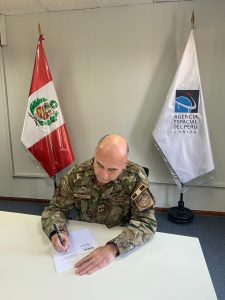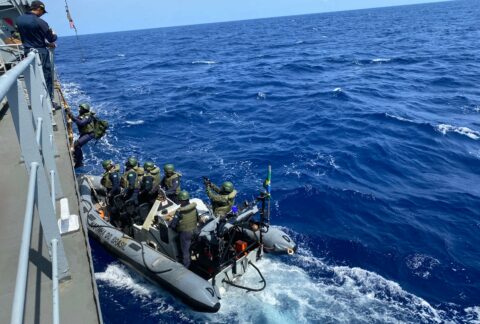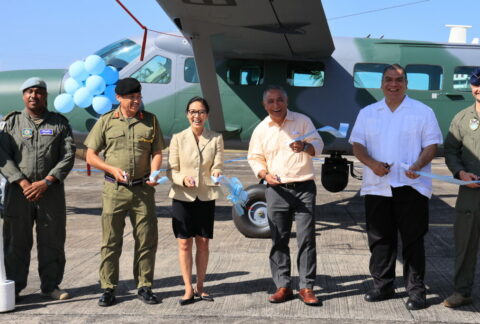U.S. Space Command (USPACECOM) took another step in expanding its international space data sharing network — this time with Peru.
Peruvian Air Force Major General Javier Tuesta Márquez, member of the Peruvian National Commission on Aerospace Research and Development (CONIDA, in Spanish), and U.S. Navy Rear Admiral Marcus A. Hitchcock, USSPACECOM director of Strategy, Plans, and Policy, co-signed the Memorandum of Understanding between the two entities.

“Peru has taken an important step today in advancing space domain awareness as a whole,” Rear Adm. Hitchcock said. “USSPACECOM looks forward to this great new relationship with the Republic of Peru and CONIDA. It will provide essential inputs to our expanding network of space-faring nations, ensuring sustainability of the domain and the continued safety and security to all on-orbit assets.”
CONIDA is the lead agency for all space activities for Peru and the headquarters of the Peruvian Space Agency. Founded in 1974, the commission is now housed under the Peruvian Ministry of Defense.
“With this agreement Peru seeks to strengthen its space capabilities and contribute to global space safety,” Maj. Gen. Tuesta Márquez said.
CONIDA’s mission is to “promote, investigate, develop, and disseminate space science and technology, generating products and services that contribute to the socioeconomic development and security of the nation, that promote spatial positioning in the region.”
The data sharing agreement demonstrates the growing importance of safety and security in the space domain to all responsible space-faring nations. This agreement will give Peru access to the highest quality satellite tracking data available to assist them with PerúSat-1 and its eventual follow-on and will provide a linkage to the experts at the U.S. Air Force’s 18th Space Control Squadron. In addition, the Space Situational Awareness Agreement (SSA) enables Peru to request seven advanced services available only to agreement holders.
Including Peru, 25 foreign nations have joined the SSA data-sharing and safety of spaceflight network. This critical collaboration helps to maintain a robust picture of the space domain. These countries include: Australia, Belgium, Brazil, Canada, Chile, Denmark, Finland, France, Germany, Israel, Italy, Japan, Luxembourg, Netherlands, New Zealand, Norway, Poland, Republic of Korea, Romania, Spain, Thailand, United Arab Emirates and the United Kingdom.









